
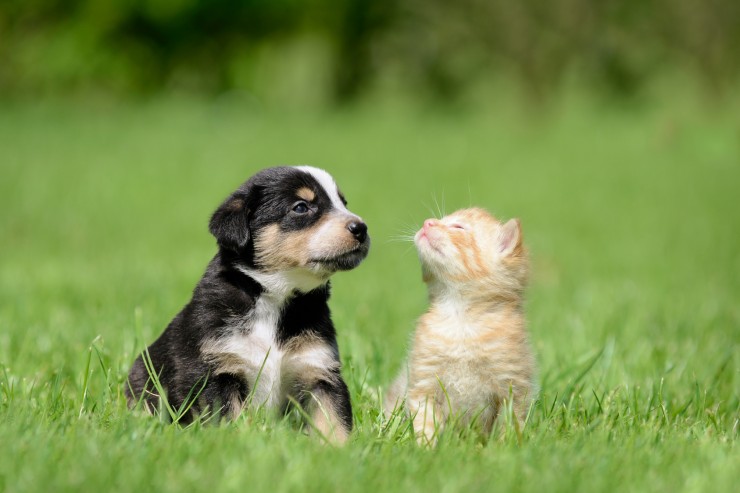
Most people have heard the expression "fighting like cats and dogs", which begs the question do all cats hate dogs? The answer is no they don’t. In fact, it could not be further from the truth because although some cats will never warm to a canine counterpart, many of our feline friends form strong and lasting bonds with dogs.
It would be fair to say the earlier a cat and dog are introduced to each other, the better, but even if both are still very young, it's best to supervise them the first time they meet, just in case one or the other gets a bit aggressive or scared. The older a cat or dog is when they first meet, the harder it tends to be. With this said, it's important that a cat is able to jump up onto something if they feel threatened by the dog and want to get up high and out of the way. You should also always keep your dog on a lead when you introduce them to a cat for the first time because it provides you with more control over them. Should the cat decide to bolt, holding on to the dog’s lead, prevents them from chasing the cat which is a natural reaction in most dogs.
You should never try to force anything, but keep things nice and calm. It can take a bit of time for both a cat and the dog to get used to each other's smell, the sound they make etc. If all goes well, it's really important to calmly praise both of them so that each time they meet they know there's a tasty treat in store if they remain calm. It's also important for both the cat and the dog to have their own spaces which they can retreat to when they want.
In some cases, cats never warm to dogs and vice versa. Instead, they tend to tolerate each other or they may even just prefer to ignore the fact they live together. Some cats and dogs form very strong and quite unique bonds which is often lovely to watch, especially when they groom each other and play nicely together. It's great when this happens because it means they keep each other company when you aren't around.
There are loads of videos on the internet of cats and dogs playing silly games together with some of them being so funny, the videos go viral. If the first experiences are good when dogs and cats first meet, they tend to get on very well. However, if the experiences are traumatic and scary, you may find they never really form any kind of bond with other and indeed, refuse point blank to be in the same room together.
Studies carried out in 2008 at the University of Tel Aviv recommend that dogs should be introduced into a household where a cat already lives and not the other way around. Cats when they know their surroundings are more receptive to having a new-comer in the shape of dog arrive on their territory because they know where they can hide. If you already have a dog and would like to get a cat, it's important to let them discover and familiarise themselves with their new surroundings before introducing them to your dog. The studies also established that dogs under the age of one and cats younger than six months old form stronger and life-long bonds with one another, although this does not necessarily mean they play with one another, but rather that they tolerate each other and live in harmony.
When it comes to body language, cats and dogs differ quite a bit which means across species their body language does not translate that well. A good example being that dogs typically wag their tail when they're excited and happy whereas in cats when they flick a tail it tends to mean they are not happy about something to the point of being quite angry. A dog would turn their heads away to show they are being submissive, but a cat would do the same thing when they are being aggressive. Interestingly, the studies found that where cats and dogs got on together in the same household, they both borrowed a little of each other's body language and repertoire, as a result this meant they got on with one another that much better too.
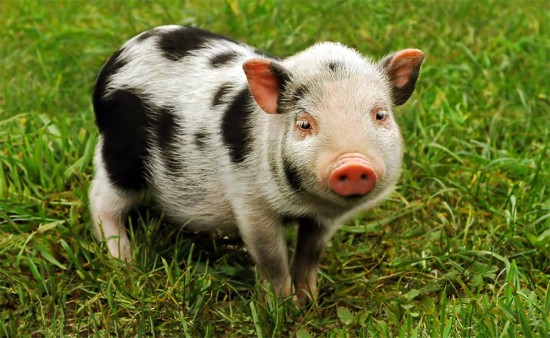 Do Pigs Make Good Pets?
Do Pigs Make Good Pets?
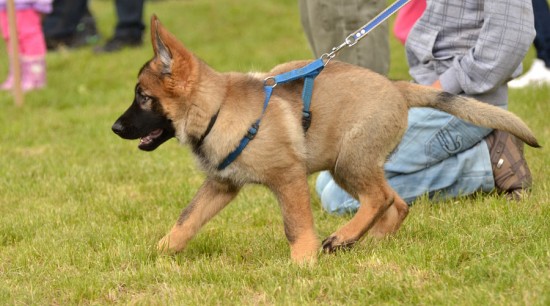 Puppy Problems - Nipping, Jumping Up, Barking, Housetraining And Socialising
Puppy Problems - Nipping, Jumping Up, Barking, Housetraining And Socialising
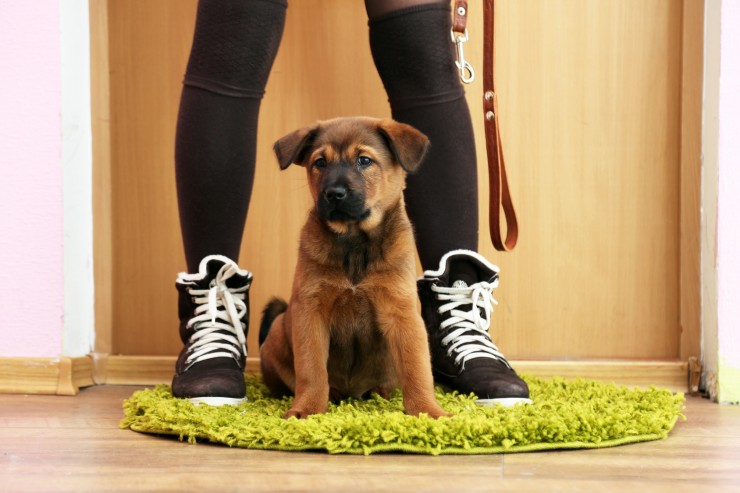 Signs Puppy Needs To Go To The Bathroom
Signs Puppy Needs To Go To The Bathroom
 Hints And Tips On Allocating A Personal Space To Your Dog
Hints And Tips On Allocating A Personal Space To Your Dog
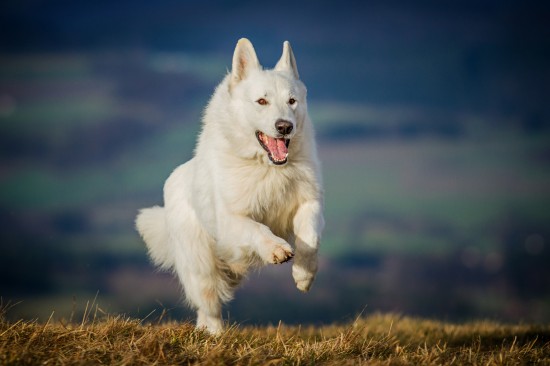 Finding Out More About The White German Shepherd Or White Shepherd Dog
Finding Out More About The White German Shepherd Or White Shepherd Dog
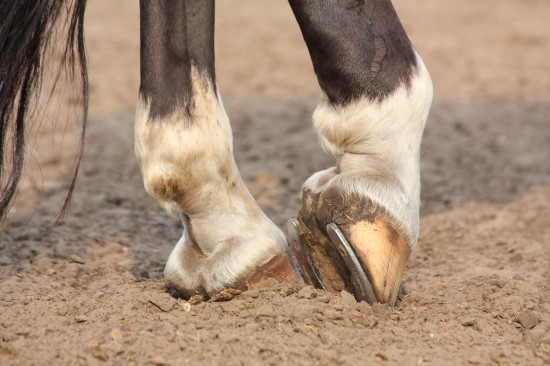 What Is Equine Pastern Dermatitis?
What Is Equine Pastern Dermatitis?
Copyright © 2005-2016 Pet Information All Rights Reserved
Contact us: www162date@outlook.com